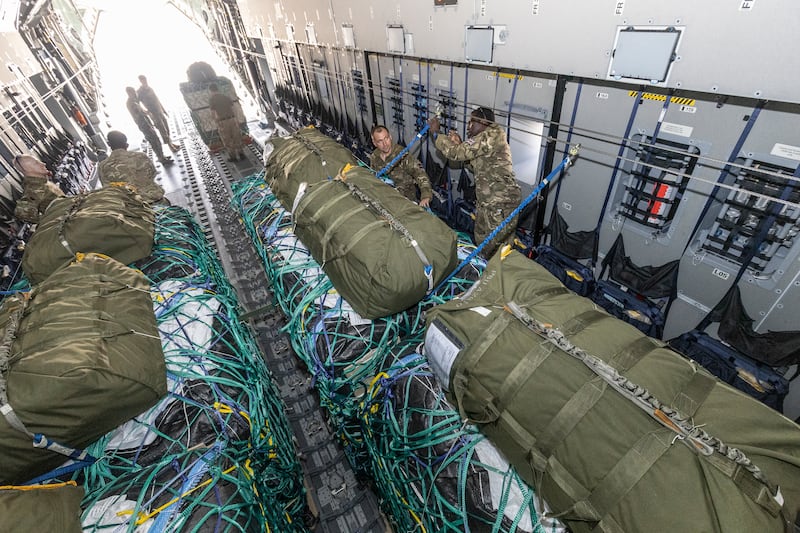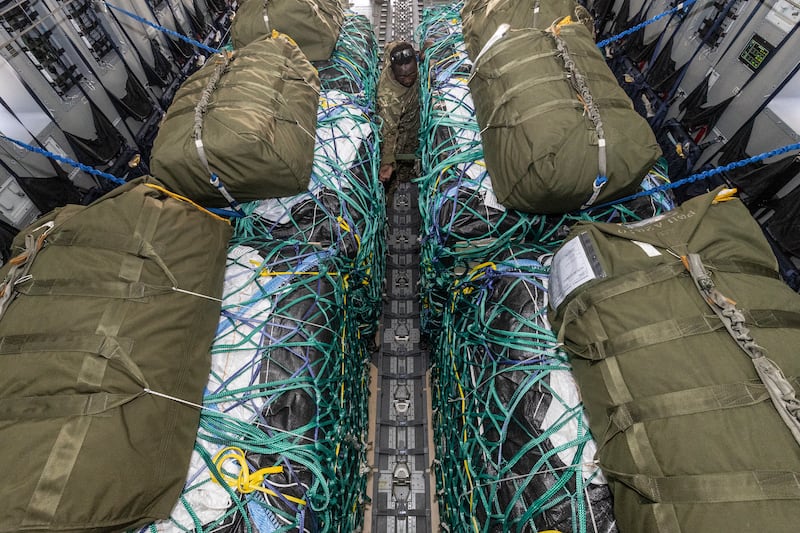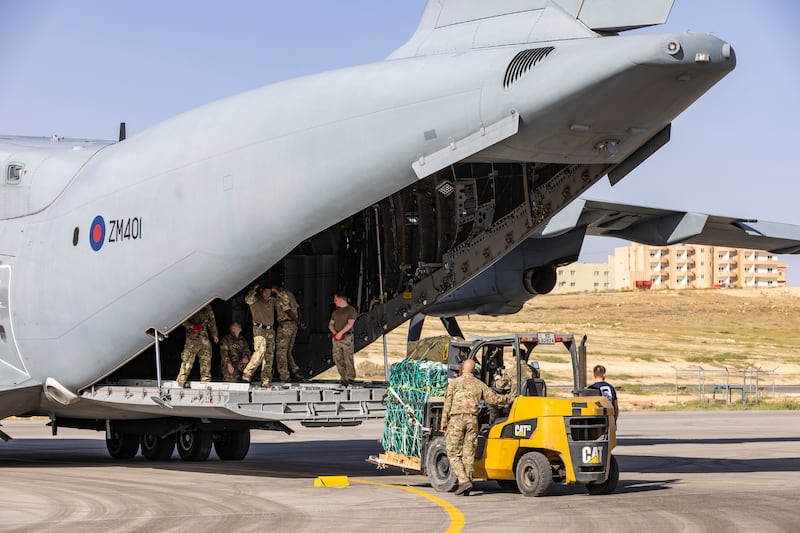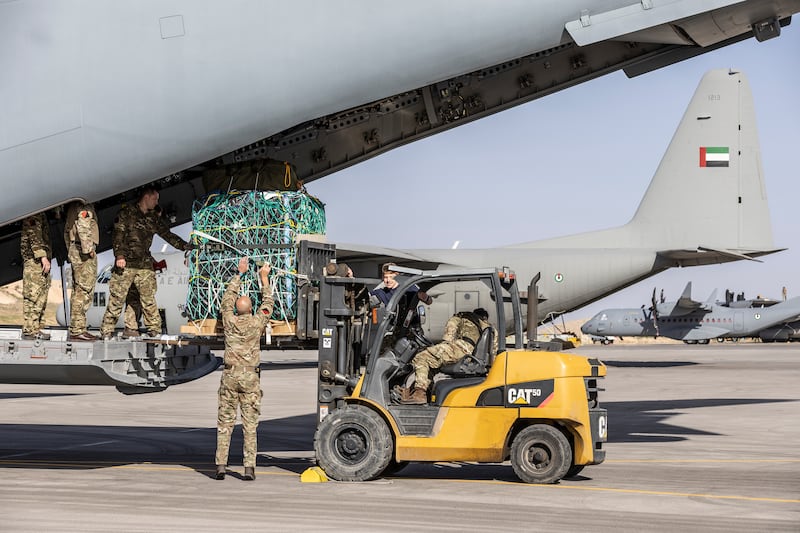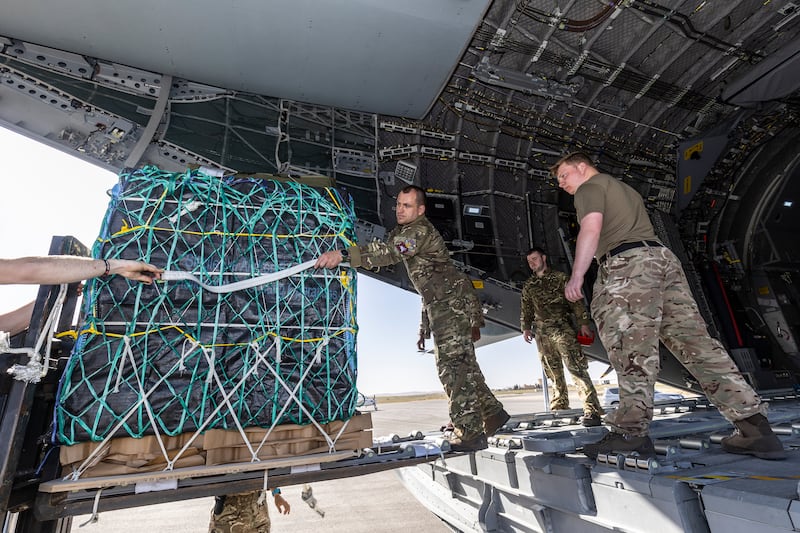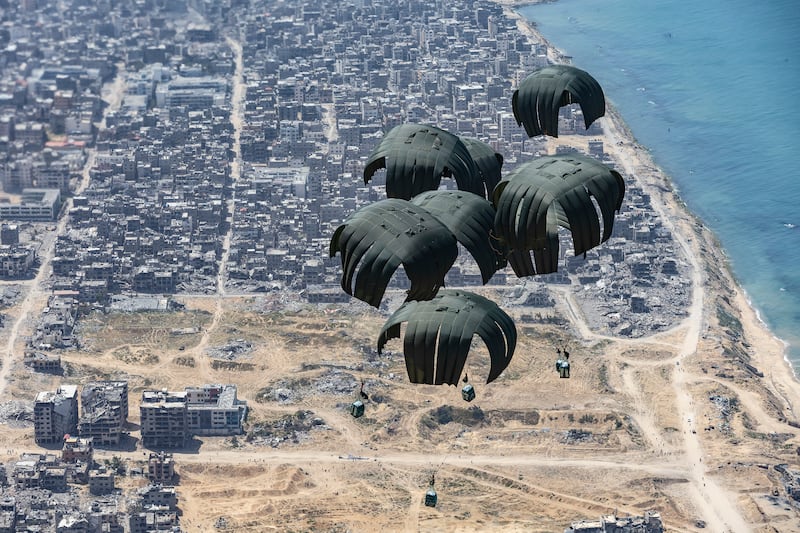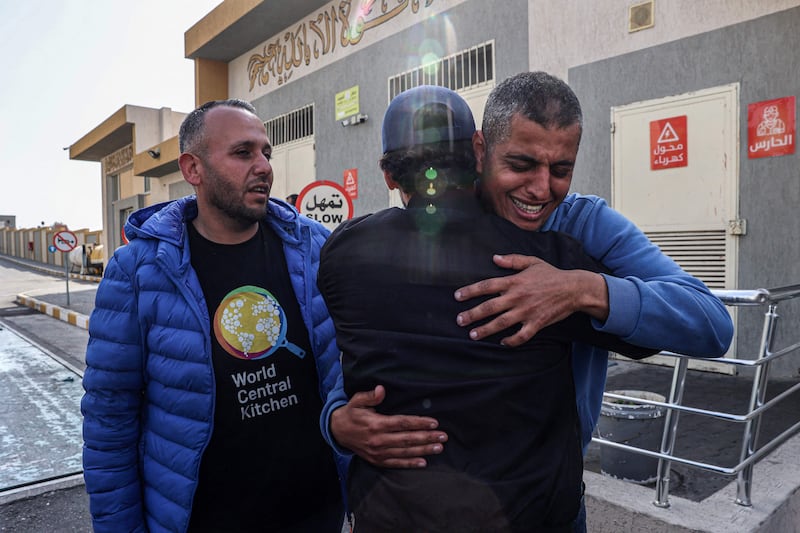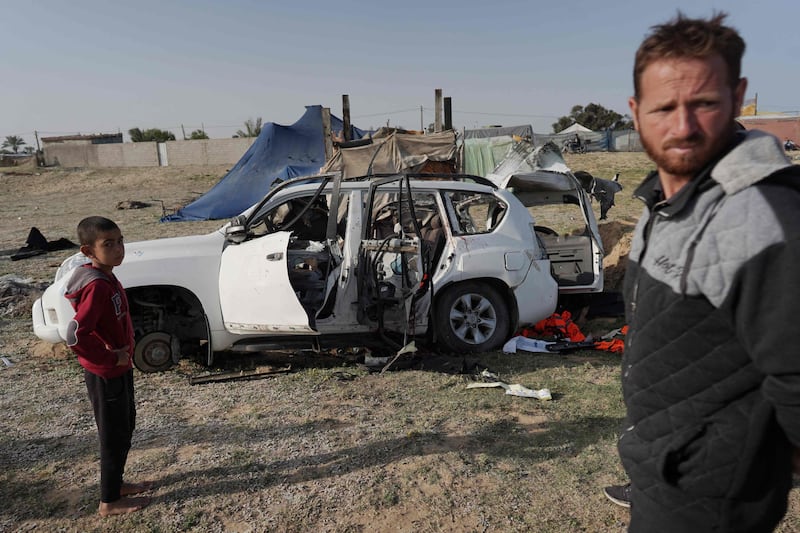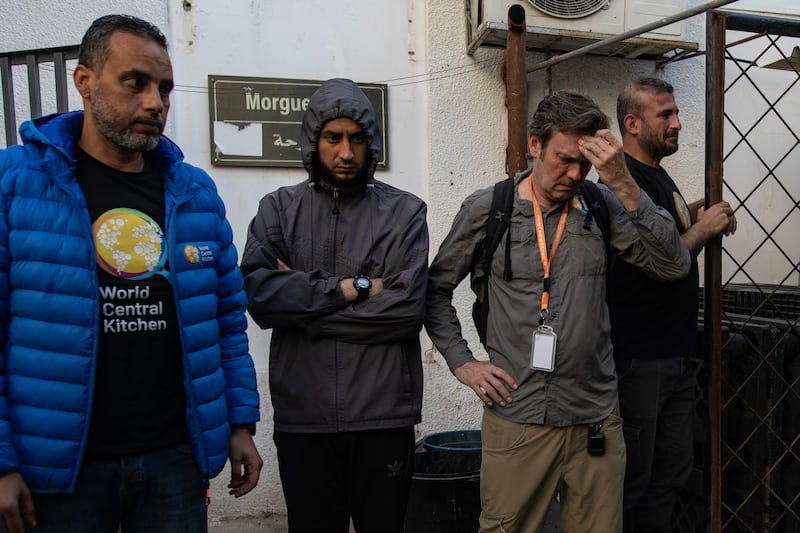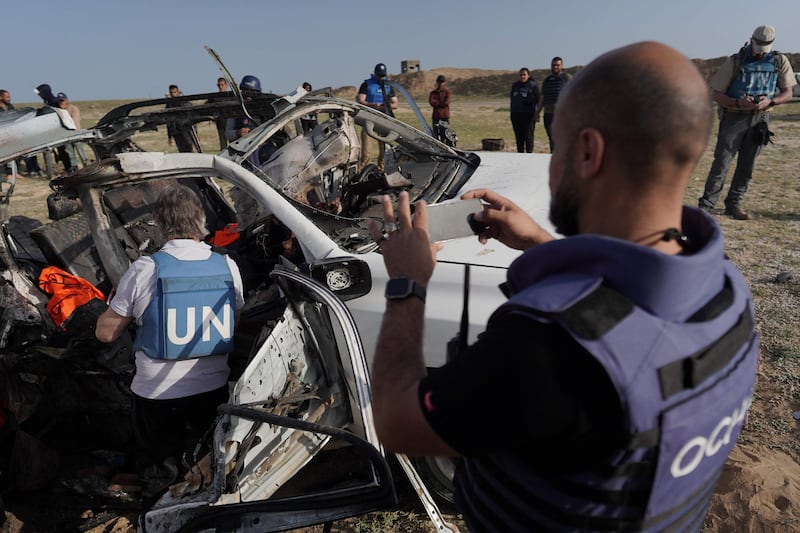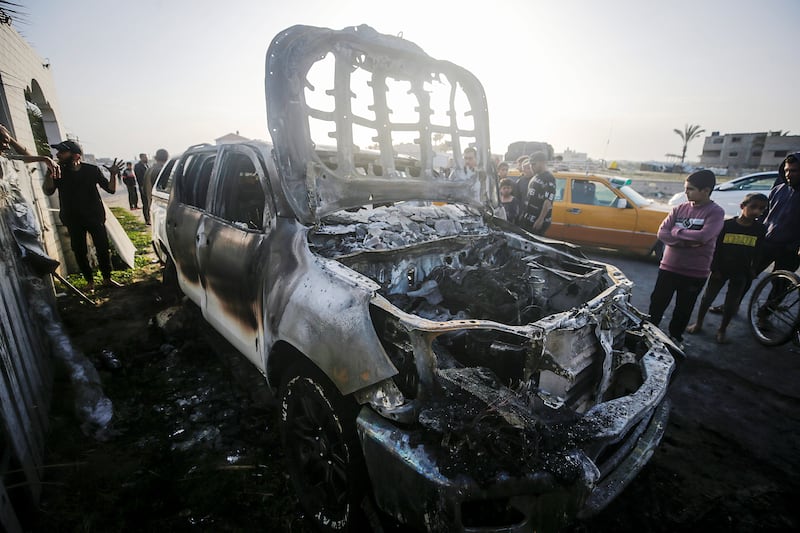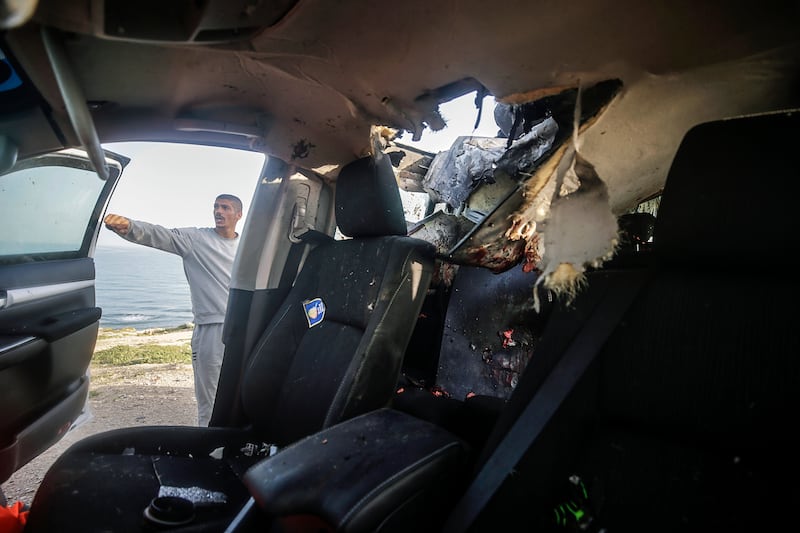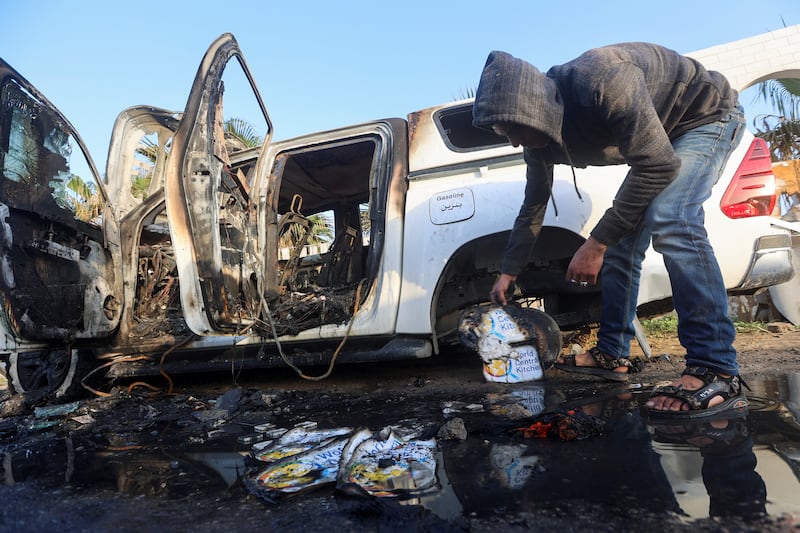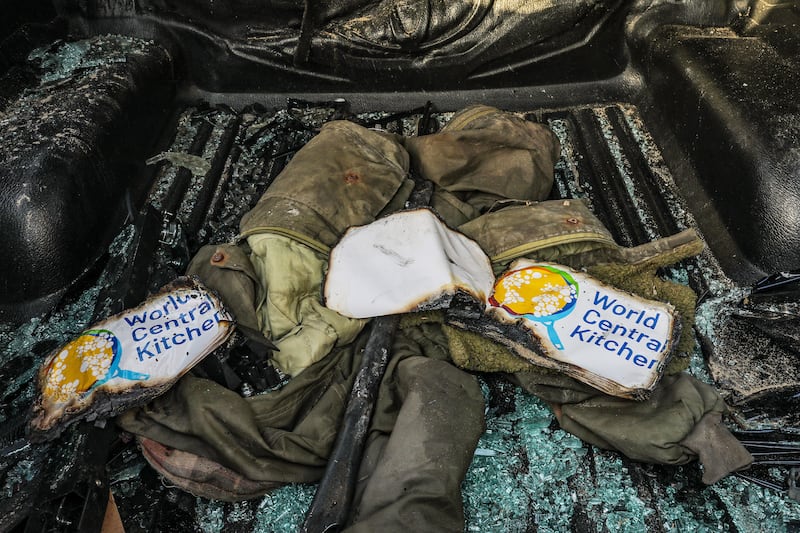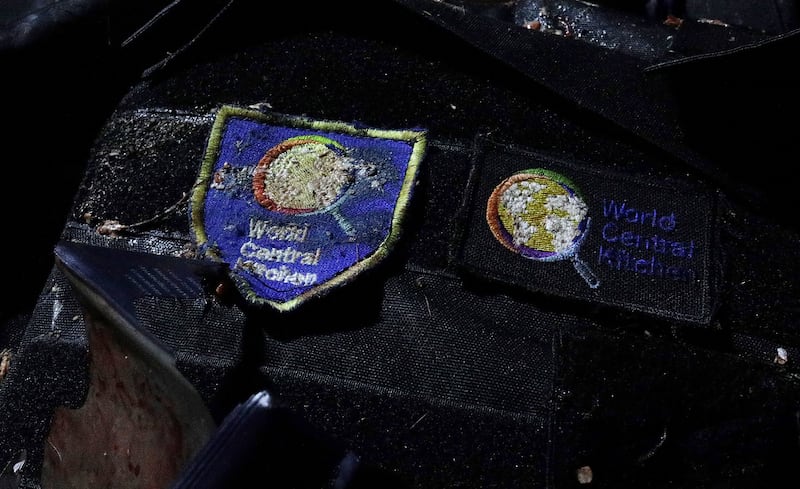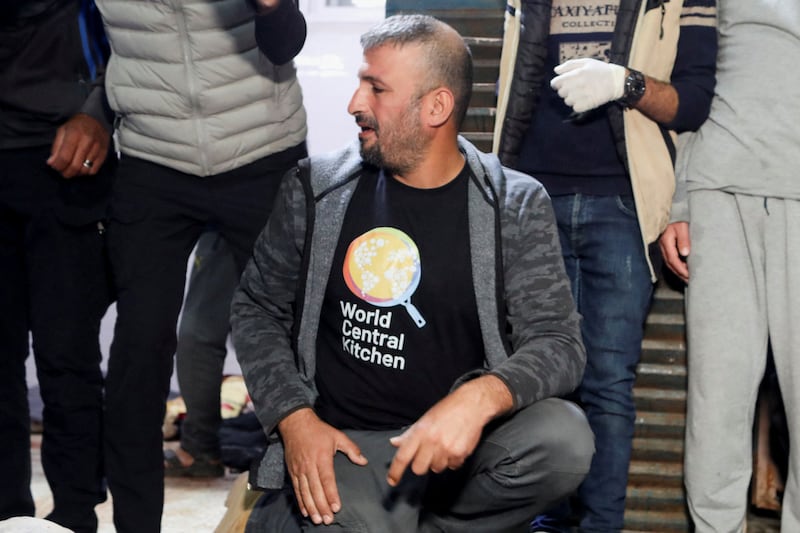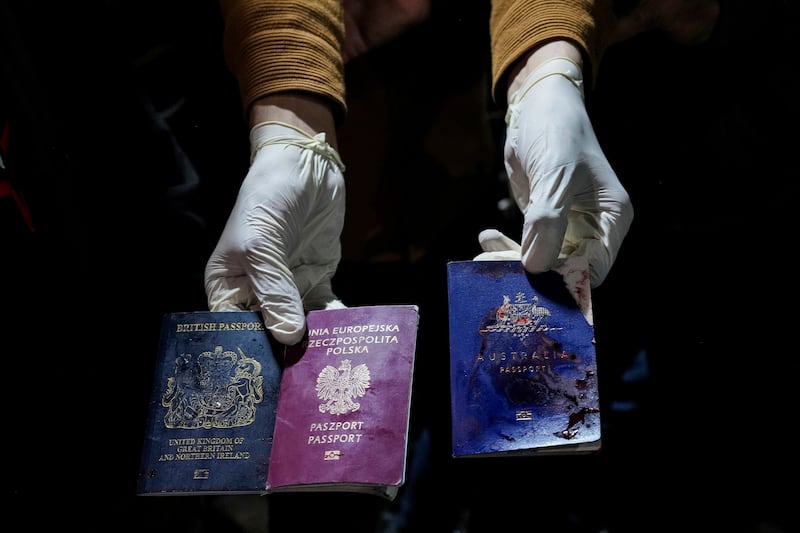Live updates: Follow the latest on Israel-Gaza
Former Middle East minister Alistair Burt has joined growing calls for Britain to suspend arms exports to Israel as fears grow about the country breaching international law in the Gaza conflict.
Warning that the UK should not be part of a "continual war" in Gaza, Mr Burt, who was the Middle East minister until 2019, said a suspension of arms sales could push Israel to shift to a political process that may bring a resolution to the conflict closer. He added that suspension had been used before as a response to Israeli action, in 1982 and 2002.
"I think at the moment a decision to call into question arms sales would be right," he said. "It would sharpen up the debate about where the conflict is going."
More than 600 lawyers, academics and retired senior judges have also joined the growing clamour from senior politicians across the political divide.
The former UK Supreme Court president Brenda Hale and ex-judges Jonathan Sumption and Nicholas Wilson are among hundreds to have signed a 17-page letter to the Prime Minister Rishi Sunak, which describes the situation in the besieged Gaza Strip as “catastrophic”.
They warned the UK is legally obliged to act to prevent genocide, after the International Court of Justice found it was “plausible” that Israel’s acts could be considered an intent to destroy, in whole or in part, a national, ethnic, racial or religious group.
The letter reads: “While we welcome the increasingly robust calls by your government for a cessation of fighting and the unobstructed entry to Gaza of humanitarian assistance, simultaneously to continue (to take two striking examples) the sale of weapons and weapons systems to Israel and to maintain threats of suspending UK aid to UNWRA falls significantly short of your government’s obligations under international law.”
It comes days after the deaths of three British aid workers in what Israel said was an “unintended” strike on a World Central Kitchen convoy, which prompted increasing calls for the government to block arms sales to the Israeli Prime Minister Benjamin Netanyahu's administration.
A growing number of Conservative figures are joining opposition calls to halt arms sales to Israel, including MPs Flick Drummond and Paul Bristow, and House of Lords members Nicholas Soames and Hugo Swire. David Cameron’s former national security adviser Peter Ricketts has also spoken in favour of a suspension.
The National understands former minister Alan Duncan has been notified by the Conservative party that he has been placed under investigation for criticising his colleagues over their support of Israel. Investigations generally take a couple of weeks and can result in expulsion.
'Publish the legal advice'
Seven aid workers killed in Israeli air strike on Gaza
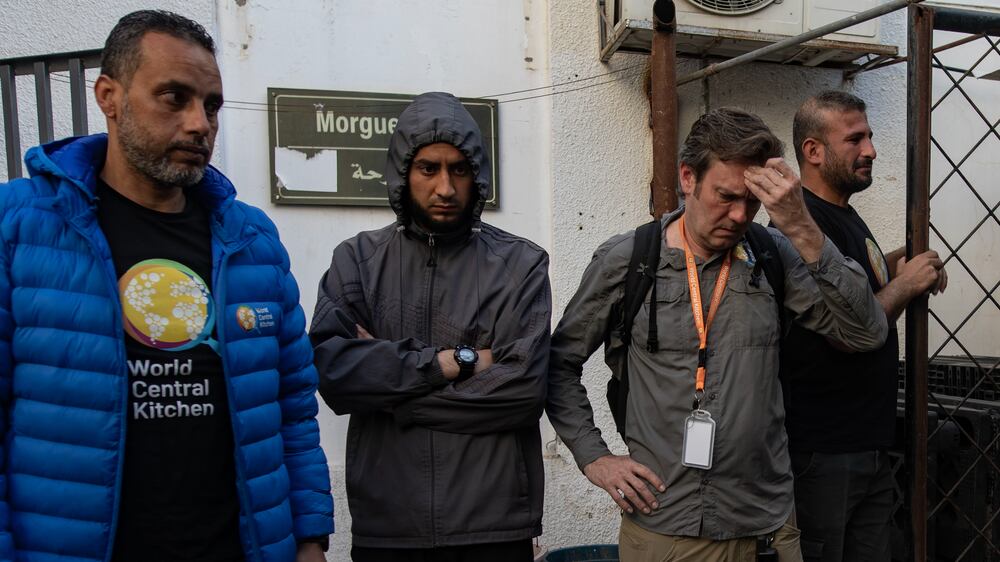
Labour's Shadow Foreign Secretary, David Lammy, said the government should publish any legal advice it has regarding whether Israel had breached international law and suspend arms sales if there is a danger weapons could be used in "a serious breach of international humanitarian law".
He said: "The law is clear. British arms licences cannot be granted if there is a clear risk that the items might be used to commit or facilitate a serious violation of international humanitarian law.
"Labour's message to the government is equally clear. Publish the legal advice now. If it says there is a clear risk that UK arms might be used in a serious breach of international humanitarian law, it's time to suspend the sale of those arms."
Humza Yousaf, the Scottish First Minister and leader of the SNP, warned the UK could be considered "complicit in the killing of innocent civilians" if it continued exporting weapons to Israel, while the Lib Dem leader Ed Davey said suspending arms sales would "send a powerful signal from a close ally of Israel that we think this is unacceptable".
The SNP and Plaid Cymru have also said the UK Parliament should be recalled to debate the situation in Gaza.
SNP Westminster leader Stephen Flynn said: "This situation demands that the Prime Minister comes to Parliament without further delay to outline the UK government's response to the killing of UK citizens by Israel, to enable MPs to scrutinise the UK government's response, and so that Parliament can finally debate and vote on ending arms sales to Israel."
The government does not directly supply Israel with weapons but grants export licences for British companies to sell arms to the country and can block those sales by suspending the licences.
Arms export suspensions
Britain has taken this course twice before. Margaret Thatcher's government suspended arms exports after Israel's invasion of Lebanon in 1982, while Tony Blair's administration blocked sales of some military equipment in 2002.
Jack Straw, who was the foreign secretary in 2002, told the i newspaper that “the time has come to suspend all arms sales” to Israel and said it should be done “in concert, very quickly” with European allies.
No 10 Downing Street has declined to say whether it believes Israel was operating within international humanitarian law.
Mr Sunak has so far resisted calls to end arms sales to Israel but has said the process is rigorous and could find that Israel is breaking international law.
Speaking to The Sun newspaper's Never Mind the Ballots show, he said: "I think we've always had a very careful export licensing regime that we adhere to.
"There are a set of rules, regulations and procedures that we'll always follow, and I have been consistently clear with Prime Minister Netanyahu since the start of this conflict that while, of course, we defend Israel's right to defend itself and its people against attacks from Hamas, they have to do that in accordance with international humanitarian law, protect civilian lives and, sadly, too many civilians have already lost their lives.
Calls for a ceasefire
Lord Ricketts argued that Israeli forces' killing of aid workers fuelled arguments for an "immediate ceasefire".
"I think there is abundant evidence now that Israel hasn't been taking enough care to fulfil its obligations on the safety of civilians and a country that gets arms from the UK has to comply with international humanitarian law – that is a condition of the arms export licensing policy," he said. "I think the time has come to send that signal."
The US remains by far the biggest supplier of weapons to Israel, with the UK Foreign Office minister Andrew Mitchell telling MPs before the Easter break that UK exports accounted for only 0.02 per cent of Israel's military imports.


